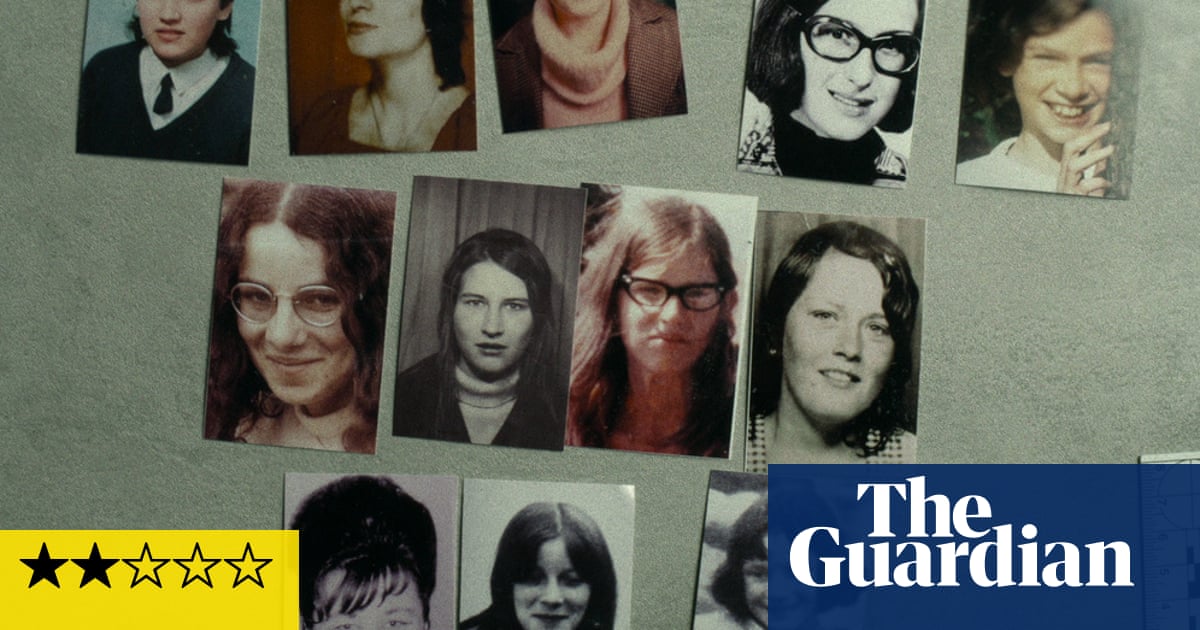Another day, another addition to the “point and gasp” school of true crime documentaries; one which adds nothing to our understanding of a terrible crime or of those who committed it, nothing to our safety as individuals or as a society, nothing except our appetite for voyeurism and the normalisation of it. Most true crime documentaries are in this school. Fred & Rose West: A British Horror Story is no exception. Perhaps the sordid, exploitative aspects of the genre are felt more strongly here precisely because it is one of our own stories, and one many of us remember reading about in the papers and seeing on the news as the awful discoveries were made at the time. Usually we watch these films at one remove. We can at least feel we are learning about how terrible America can be, or that a victim who would otherwise be forgotten amid the great mass of victims evil people create has been memorialised. Here, we are more fiercely confronted with our complicity and the weakness of the arguments for watching.
The best that can be said about the latest three-part testimony to human depravity is that it is superficial. It does not delve into the one aspect of the 1994 case that has the potential to edify – the backgrounds of the killers, the psychology of their relationship, and whether the world would have been different if they had not met; it also glosses quickly over the system’s failure to prosecute Fred West for rape early on in his murderous career – but neither does it dwell on the baser details of the case, the ones I suspect the officers and relatives interviewed here have in mind when they say how much this experience still haunts them.
The first episode – titled simply “Fred” – covers the discovery of the bodies of, eventually, nine young women buried under the patio and in the basement of 25 Cromwell Street, Gloucester, home to Fred, Rose and the remainder of their 10 children who had not yet been taken into care. The programme gives the impression that the children’s references to their missing sister Heather being buried under the patio had simply become too frequent for the authorities to ignore. In fact, suspicion was primed by the claim of rape of one of the children that led to most going into care, where they were found to have many signs of physical and sexual abuse.
We hear Fred’s voice on the police interview tapes as he is questioned about why he and Rose never filed a missing person’s report for Heather, who has not been seen since June 1987, and see him in the footage taken by police during his several visits to Cromwell Street to guide them round. He can’t remember the names of all the girls and women he (not Rose, he vehemently and repeatedly attests) bound, tortured, raped, killed and dismembered, but he marks the locations of their bodies as best he can with spray paint. At least one, Shirley Robinson, was heavily pregnant with his baby.
The second episode, “Rose”, focuses on the police efforts to find the evidence that would tie her to the killings. There was no way, they felt, that she could not have known about the murders Fred had admitted to committing. The question was how much she was involved and how much they could prove. The safe house they had put her and the older children in was bugged, but she was only ever heard loudly proclaiming her innocence.
The final episode outlines the trial. Fred killed himself before his could take place, but Rose stood accused of 10 counts of murder. The Wests’ former nanny Caroline Roberts testified at trial to Rose’s involvement with Caroline’s own kidnapping and subsequent ordeal. It was also proved that Fred was in prison when Charmaine West, his stepdaughter with his first wife (Rena, whom he killed), was murdered. Eventually Rose was unanimously found guilty of all 10 murders and given a life sentence, with the judge emphasising that she should never be considered for parole.
And what are we to do with this information? What is the point of a programme that is little more than a bald summarisation of a bleak and terrible tale? This happened, then that happened, then this, then that. So what? What is the point? If you are not even calling proper attention to the many, many times authorities had concerns and could have intervened before nine people (at least – Fred suggested there were many more) died in horrific ways, what are you doing? Reminding us that evil can exist? Also pointless. If it brought a measure of peace to the victims’ relatives interviewed to remember them in public, I’m glad. But beyond that, it’s just a ratings hunt and it stinks.
Fred and Rose West: A British Horror Story is on Netflix now.
